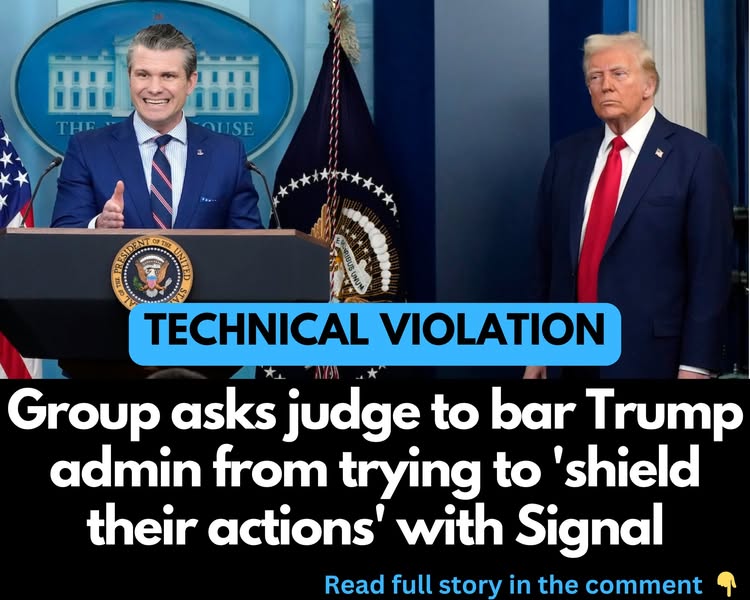A major legal battle is unfolding over allegations that senior members of President Donald Trump’s Cabinet have been repeatedly violating federal law by using the encrypted messaging app Signal to conduct government business, despite a court order requiring them to preserve such communications.
According to a motion for a preliminary injunction filed this week, members of Trump’s administration have continued to use Signal’s auto-delete feature to exchange sensitive information about national security and foreign policy. The watchdog group American Oversight, which filed the motion, argues that this conduct violates the Federal Records Act (FRA) and obstructs government transparency.
The group had previously sued over the use of Signal by top officials to discuss military operations. A judge ordered the officials to “make best efforts” to preserve the records, but American Oversight now claims those efforts have failed. The motion highlights the existence of at least 20 Signal group chats reportedly used to discuss critical issues including Ukraine, China, and Gaza.
According to the motion, Director of National Intelligence Tulsi Gabbard testified in March that Signal is “pre-installed” on government-issued phones, raising concerns about the scale of untraceable communication within the executive branch.
“Defendants’ failure to initiate recovery actions for lost or destroyed communications conveying official government business violates the Federal Records Act, thwarts government transparency, and threatens national security,” the motion argues.
American Oversight contends that without immediate court intervention, more records will be permanently lost. The group is asking the court to issue a preliminary injunction that would define all Signal messages sent or received by Cabinet officials in their official capacity as federal records under the FRA and require those messages to be preserved.
The watchdog group also links these violations to the Freedom of Information Act (FOIA), arguing that the systematic use of disappearing messages effectively blocks public access to critical government records.
While a temporary restraining order was previously issued in the case, it expired in April. American Oversight is now pressing for a more comprehensive and lasting legal remedy, warning that the administration’s use of encrypted, disappearing communication tools may be a deliberate strategy to evade oversight.
The outcome of the case could set a critical precedent for digital record-keeping and transparency in government operations.
